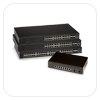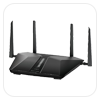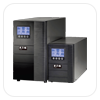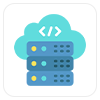
Life in the online world is as valuable as life in the material world. Online banking and social networking provide an outlet for vast quantities of individual and professional information. This reliance, though, provides access to invasion by a number of security threats. Protect yourself by being aware of the threats out there and the protection available. Firewalls are still one of the oldest and best.
Let’s examine a few cybersecurity threats and how a firewall can be your virtual security guard.
Common Cybersecurity Threats:
-
Malware Attribution:
It is quite generic and can refer to any type of malicious program that intends to do harm to your computer or steal your data. It encompasses viruses, worms, Trojans, and ransomware.
For example, a Trojan can survive on its own by pretending to be a valid program, but once it is installed, it will install a backdoor through which attackers will have access to your system.
-
Phishing:
This refers to the act of impersonating a trusted organization in an electronic message to entice individuals to reveal confidential information like usernames, passwords, and credit card numbers.
For instance, an email from your bank might request you to click on a link and provide your login credentials.
-
Denial of Service Attacks:
These attacks overburden the target server by sending excessive traffic, making it unable to operate and therefore denying service to legitimate users.
For Example, the botnets may send tens of thousands of requests all at once to a site, causing it to crash.
-
Data Breach:
Unwanted or unauthorized access to or disclosure of confidential or sensitive information has occurred. These can be via hacking, malware, or insider threats.
For Example, if a hacker discovers a vulnerability in a website security system, he can infiltrate that site’s customer database containing names, addresses, and payment details.
How a Firewall Serves as a Shield:
A firewall is a system that controls or scans network traffic based on a predefined set of security rules. The firewall checks each item of data traffic that attempts to come in or go out of your network and will stop anything that doesn’t comply with the defined specifications.
-
Malware Theft and Damage Prevention:
Firewalls can be set to prevent them from communicating with harmful servers or IP addresses from which the malware receives instructions or steals information. Hence, even if there is malware that manages to go through prevention efforts to your system, it will not be allowed to communicate with its controllers by the firewall.
If, for instance, a Trojan attempts to pull instructions from a command-and-control server, then a properly configured firewall can see that an unauthorized outgoing connection was made and shut it down.
-
Blocking Malicious and Suspicious Network Traffic:
Although it cannot block phishing emails from reaching your inbox, a firewall resides at the network level in the electronic communication architecture. The firewall in your network may well block the connection since the phishing link is trying to redirect you to a known malware website that attempts to install malware or steal credentials.
For example, your firewall may not allow your computer to access a harmful site when you click on a phishing email link that’s meant to redirect you to a malware-hosting website.
-
DDoS Mitigation:
Although the default firewall on your home network might barely be sufficient to prevent a mass-scale DDoS attack fully, enterprise-level firewalls are designed to identify patterns of malicious traffic characteristics of DDoS attacks and block them. Therefore, they can rate-limit requests coming from specific sources.
For instance, you can configure the firewall to permit only specified programs to use the Internet so that some other potentially compromised programs cannot send out sensitive information.
In Conclusion:
The first and most crucial line of defense in your security plan, the firewall is no magic bullet for every threat, but it is a necessary tool because of its management of network traffic and ability to apply security rules to keep your devices and data safe. A properly configured firewall is like a strong deadbolt on your door, significantly lowering the possibility of becoming a victim.
















































































































